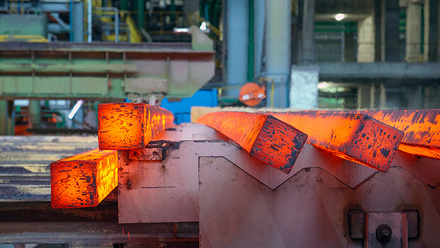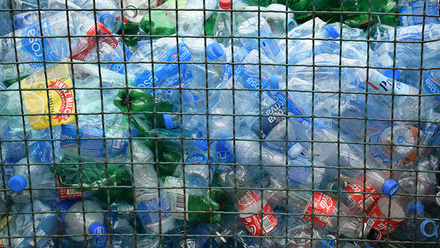Corrosion science's bright future and what that means for the European Federation of Corrosion
European Federation of Corrosion President Tomáš Prošek discusses the EFC Approved Courses, global corrosion challenges, and the contribution of member societies like IOM3
In 2024, the IOM3 Training Academy course ’Introduction to Corrosion & Its Prevention’ was awarded European Federation of Corrosion (EFC) Approved course status. This one-day virtual course, one of 9 courses in our Metallurgy in Practice suite, is delivered by experienced corrosion expert, Clayton Thomas twice a year.
We speak to EFC President Tomáš Prošek about the background of EFC, its activities, and the contribution of member bodies like IOM3 in training in the industry.
Q: Hello Tomáš. What are the main activities that the European Federation of Corrosion is engaged in?
The EFC is a federation of member societies (MSs) active in corrosion protection in Europe and elsewhere. Our goal is to minimise corrosion losses by fostering collaboration between MSs and their members.
The key networking event of the EFC is the annual EUROCORR conference, which brings together around 1,200 corrosionists from academia and industry not only from Europe, but also from the USA, China, Japan, South Korea, the Middle East, Australia, and other regions. We do our best to make EUROCORR as interactive as possible during four full days of scientific and technical discussions, business exchanges, and social gatherings.
The success of EUROCORR would be impossible without the hard work of enthusiasts leading the EFC Working Parties (WPs). There are currently 24 WPs dealing with all important aspects and application areas of corrosion. Many of them organise courses, webinars, conferences, and meetings, publish EFC Green Books on different subjects, and run small collaborative projects financed by EFC. To help them stay in contact with the corrosion community throughout the year, EFC also has a strong media team active on LinkedIn.
Every second year, there is an EFC-CSCP conference held in China and a new industrially-oriented conference series is currently under preparation. Crucial for us is the support of early career corrosionists in the Young EFC. Since we believe that education is key in supporting the EFC mission, we label courses of our members that meet high-quality standards within the EFC Approved Course Label Scheme. We also advertise events of the MSs with EFC Event Numbers.
Q: In the interest of advancing the science of corrosion and raising awareness, what are some key steps that you take?
We believe that bringing people together and supporting the open exchange of knowledge and information is the best way to help the field of corrosion protection. Enabling networking and learning from each other is behind all our actions, as is the conference organisation, publication activities, Young EFC events, social media posts, and others. Given the corrosion advocacy, we actively support the World Corrosion Organization.
The WCO is recognised by the United Nations and it made great progress recently under the presidency of Gareth Hinds in finding ways how to pass the message that the sustainability goals are identical to corrosion protection ones. One of our goals is to raise the profile of corrosion among policysetters and decision-makers within the European Commission and in countries in which our MSs are based.
Q: Can you describe the skills and knowledge gap that exists in the corrosion sciences, and how training can help overcome this?
There are two aspects of this problem. First, we need to address the lack of awareness of the importance of corrosion science and corrosion protection in fields that are, or should be, the main 'customers' of corrosion experts.
We still see too many mistakes and lost opportunities leading to economic, environmental and health disasters caused by corrosion. Several studies have shown that between 1/4 to 1/3 of corrosion losses can be avoided if only the already available knowledge is correctly applied. The fact that corrosion experts are often consulted only after a problem has appeared is well-known to anybody involved with corrosion protection.
The same applies for corrosion science. Research into mechanisms of corrosion degradation and advanced corrosion protection methods needs to be financed early enough to avoid losses. Therefore, we need to educate our colleagues in architecture, civil engineering, power generation, building, design, metallurgy, and cultural heritage, as well as many other fields. If they know what engineering solutions to implement and when to ask for help, the synergy is obvious. No deep knowledge is required here; it is more about reaching far.
Second, we need to stay up to date, be aware of new findings and integrate them into our practices. For a researcher, the best way to keep in touch with the latest developments is to attend both general and specific corrosion conferences. It may sound old-fashioned, but personal contact, the ability to ask questions immediately, and the chance to discuss with each other, is the most efficient way of staying informed. It helps us identify our weak points and where we can then look for literature or specialised courses.
For corrosion protection practitioners, regular education is a must. Ideally, it should be embedded in a certification system.
Q: What can be the contribution of member societies like IOM3, in partnership with EFC?
A good example can be World Corrosion Awareness Day 2024 when the EFC participated in an orchestrated social media operation when posts from actors based in almost all time zones were released hour by hour. EFC MSs including IOM3 helped to the immense success of the publicity campaign, which generated 800 million impressions in total. MSs also can bid to host EUROCORR, as IOM3 is doing in 2026. Each organiser gives the conference a unique flavour, which participants highly appreciate.
Q: How do you foresee corrosion sciences developing in the near future, and do you recognise any potential opportunities and challenges?
I believe that the corrosion sciences and protection fields have a bright future. The paradigm is slowly but surely changing, as society is not only requesting rapid and immediate solutions but also sustainable ones. It is more and more important to consider the entire life cycle of products and beyond, including their recyclability. And you simply cannot do this without corrosion scientists and engineers.
We need to make sure that all design and material selection decisions are made with this perspective, which means that there is going to be an increased demand for well-educated and trained corrosionists. For the moment, I do not think that tools of artificial intelligence (AI) will replace us any time soon. They can help us if they are cleverly integrated into the decision-making process; still, the role of experienced and educated individuals is indispensable.
There is a lot of work ahead of us. We need to develop new complex materials with advanced properties and reduced environmental impact, make sure that they will survive long enough, and are easily recyclable after the end of their use. Beside traditional tools such as laboratory and field tests, analytical equipment, journal and conference papers, and books, we are integrating AI tools, modelling, and big data analyses.
Q: And lastly, tell us about the EFC Approved Course Label, why it was set up, and how it can benefit member societies.
The purpose of the EFC Approved Course Label is to support the education and training of corrosion professionals to limit the detrimental impacts of corrosion on assets, the environment, and health. The Label is granted to courses reviewed in detail and proposed by EFC MSs, who are responsible for the course content and delivery.
The course must focus on corrosion, corrosion prevention, or corrosion protection. The scheme was established to help MSs advertise their educational activities widely and allow the EFC community to have good access to high-quality training.
All EFC-approved courses are listed on the EFC website. The label guarantees that a course or training scheme satisfies the EFC's tight requirements on course governance.







